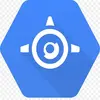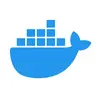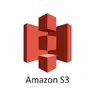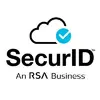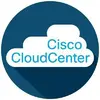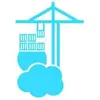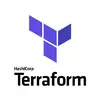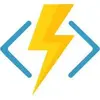
Cloudreach
Cloudreach is a platform that provides multi-cloud service solutions, including Cloud Management, Application Development, Cloud Data & Analytics, DevOps, Cloudamize, Cloud Consulting, and Cloud Migration. It helps enterprises move their workloads to the cloud by navigating the complex world of cloud technologies. The company helps you reduce the costs and risks associated with cloud computing implementations. It has capabilities such as technical consulting, security assessments, migration services, and cloud operations.
Its cloud advisory and consulting team can guide you along your cloud transformation path to effectively using cloud software, whether it’s fully cloud-native, hybrid, single, or multi-cloud. By codifying its knowledge, maturity, and experience, Cloudreach accelerates the time-to-value of the cloud so enterprises of any size can take full advantage and see improved results in no time at all. All in all, Cloudreach is a great platform for organizations to upscale and make their business a success.
Cloudreach Alternatives
#1 AWS Lambda
AWS Lambda is a compute service where you can upload your code to AWS, and it runs automatically in response to events and automatically manages the compute resources for you, making it easy to build applications that respond quickly to new information. It lets you run code without thinking about servers. It runs your code only when needed and scales automatically, from a few requests per day to thousands per second. You can use AWS Lambda for all sorts of applications, from e-commerce to mobile backend to travel reservations to video processing.
The service is accessed through an API or the AWS CLI. With this platform, you can run code for virtually any type of application or backend service, all with zero administration. You pay only for the compute time you consume; there is no charge when your code is not running. This lets you run code in response to a wide range of events such as HTTP requests via Amazon API Gateway, changes to data in Amazon S3 buckets or DynamoDB tables, or modifications to data in Amazon Elasticsearch Service domains, all without managing any servers or clusters.
#2 Fission.io
Fission.io is a serverless framework for Kubernetes that supports many concepts such as event triggers, parallel execution, and statelessness. It provides an easy-to-use interface to build microservices that are event-driven and stateless. The software allows you to quickly define microservices that can be triggered by events in a cluster or out of a queue. Fission also allows you to build simple HTTP endpoints & use SQL/NoSQL databases in your function.
Functions are deployed using standard Kubernetes primitives such as Deployment, StatefulSet, DaemonSet, & CronJobs. It allows you to run code without managing servers and provides simple integration with your existing backend applications. You can run your business logic in any language or runtime of your choosing, and Fission will take care of managing your cloud infrastructure. With an ever-growing list of carefully selected runtime integrations, including Node.js, Python, Java, Go, and Ruby, to name a few, the software lets you focus on coding the new features and services your business needs.
#3 Nuclio
Nuclio is an Automated Data Science Platform that provides a powerful SDK and visual designer to create, manage and deploy fully-managed data science pipelines in minutes. The platform comes with a unified interface built to help businesses build secure, scalable, data-driven applications on any data source. Its platform enables organizations to easily build, deploy, and run scalable machine learning pipelines in production. With Nuclio, you get an end-to-end data science solution that lets you focus on what’s most important, i.e., finding valuable insights from your data.
Its robust state management and operational tools allow you to focus on your application logic instead of managing infrastructure. The solution will automatically handle all the infrastructure required to run your scripts (Docker, AWS Lambda, S3, RDS, etc.) and will work seamlessly with the most popular programming languages for Data Science. All in all, Nuclio is a great platform that you can consider among its alternatives.
#4 Google Cloud Run
Google Cloud Run is a fully managed and portable computing platform that helps developers build and run their applications on any infrastructure they choose without having to build and maintain the underlying hardware and software stacks. Your code runs in a fully managed container using the same infrastructure that powers the largest, most demanding applications in the world. Whether your application needs to support thousands of users or petabytes of data, it can benefit from Cloud Run’s high availability, auto-scaling features, and performance.
It is fully integrated with GCP services that can be used for data storage, user management, and access control. It seamlessly deploys your application with a single command; you don’t need to worry about managing the infrastructure or VMs. It benefits you from Reliability and scalability, Easy application deployment, Simple platform management, Application health monitoring, automatic rollback, etc. All in all, Google Cloud Run is a great platform that you can consider among its alternatives.
#5 Apex
Apex is a low-code development platform that helps enterprise IT teams build, deploy and scale new applications more quickly and cost-effectively. With this platform, you can quickly build features, forms, reports, and data visualization to connect your customers to the right data. With no coding required, you can use a point-and-click interface to design your app, then publish it for business users to run on their desktops or mobile devices. In addition, you can refine and extend those apps and deliver them to the cloud or your private network.
You can also integrate data from Oracle and other systems into your apps and create custom workflows to automate business processes. Apex is designed to help businesses scale with less effort. It features tooling that enables DevOps teams to deploy apps more quickly and easily, helping IT departments keep up with the rapid pace of business innovation. It also provides intelligent data management capabilities that help you get information when and where you need it.
#6 Zappa
Zappa is a server-less Python web application deployment platform that lets you run Python code on AWS Lambda and Apache OpenWhisk. It features an easy-to-use command-line tool and API that abstracts away the underlying infrastructure so you can focus on writing your application. You don’t have to spend time monitoring or restarting your app because Zappa does it for you. It lets you leverage Amazon’s scalable infrastructure for running your Python code, so you don’t have to worry about capacity planning, load balancing, or spending your time managing servers.
These tools enable developers to build any type of application, from IoT to the web, on-premise, or in the cloud. Zappa’s serverless platform also abstracts away your AWS account and all the intricacies of managing serverless infrastructure, including versioning and auditing of code and tracking deployments, enabling developers to focus on writing code for their core product.
#7 Knative
Knative is an open source project that aims to make it easier to create and run modern, serverless workloads on Kubernetes. This makes it easy to deploy your code quickly, integrate with a variety of event sources like Pub/Sub, Cloud Function, Service Hooks, and monitor how your application is performing. Creating and deploying applications with Knative requires less configuration (and no YAML) than older technologies like Kubernetes Engine.
It is meant to be flexible enough so that you can run it on Kubernetes Engine, App Engine, or your own Kubernetes cluster. The APIs are compatible with the Apache Serverless Application Model. The Eventing feature is a lightweight stream processing layer for handling events such as changes to a state in a data store or a message from a queue. Moreover, it provides an event-driven approach for building and serving your tier-based serverless workloads and leverages extensive experience in serving billions of requests per day with
#8 Dataphin
Dataphin is an intelligent data creation and management platform that allows non-data experts to easily discover data, ask questions and retrieve insightful answers, usually within minutes. The platform provides built-in compliance tools that allow users to stay on top of data regulation updates from any part of the world, ensuring that the team is always legally compliant. It offers a wide range of features, including automated voice recognition for dictation, predictive analytics for structured records, and handwritten data extraction for unstructured documents.
The platform also comes integrated with an API and third-party integrations so that users can easily convert and export their data into other applications. The platform is built on the premise that data insights are valuable in every part of the business. To date, Dataphin has delivered over one million data sets to over 100,000 organizations ranging from Fortune 500 companies to small organizations and individuals. These datasets range from several dozen up to millions of rows of structured and unstructured data per report.
#9 Fujitsu PaaS
Fujitsu PaaS is a software platform that helps organizations to improve their business models by offering enterprise architecture and next-generation applications. With a higher degree of functionality and flexibility, the new generation of applications can support diverse user roles and be used effectively for business continuity and expandability to meet the needs of a globalized business environment and respond to customer demands for flexible service provisioning. All this enables organizations to reduce development time and cost for building modern, sophisticated business applications.
Organizations can quickly select, combine and deploy IT services pulled into a unified platform in an easy, rapid and precise way, thereby making it possible to respond flexibly to the ever-changing demands of their business while reducing costs and improving performance. Regardless of the size, industry, or current IT environment, Fujitsu PaaS can be flexibly configured to support any organization, project, or event. Fujitsu’s history of innovation has created a solid, stable foundation on which to build Fujitsu PaaS.
#10 Databricks Runtime
Databricks Runtime offers core components that run on Azure clusters and help you accelerate data insights for your organization. With powerful features like distributed Apache Spark, SQL, machine learning, and graph capabilities running on the Azure platform, you can use Databricks Runtime to solve complex data challenges in days or weeks rather than months. It has low-latency and fault-tolerant distributed memory storage with optimizations for both memory and disk utilization.
Spark is also customizable to support applications ranging from batch jobs over stream processing to interactive queries. It’s built to keep our customers productive, maximize security and stability, and optimize performance. It provides core functionality such as data streaming, distributed execution, and connectors but should not be confused with the SciDB Analytics Database, which leverages the runtime. The Databricks Runtime includes both Software Development Kits (SDKs) and language bindings.
#11 Serverless
Serverless is a cloud computing platform that allows you to deploy and monitor applications on AWS Lambda. The most fundamental feature of this infrastructure is its extreme flexibility. The ability to define and deploy applications in this manner is perhaps its greatest strength, as it requires no familiarity with the inner workings of each individual service. Serverless also lends itself to efficient code development, as the deployment process inherently performs basic tests on the supplied code. The results of the test are used to determine which errors have occurred.
An added benefit comes from the fact that it provides a rich set of libraries that allow users to choose from a wide variety of services. The platforms provide an event-driven, low-cost environment for deploying applications. Once you upload your code, your application can self-heal and respond when needed. It allows you to write your code in any language by wrapping them into modules and deploying it as a function.
#12 AWS Batch
AWS Batch is a platform that allows you to compute, store, and network the capacity to run batch jobs. You can perform operations like restoring data from a disaster recovery site, Processing large datasets or images, Generating reports or running batch applications, Calculating metrics, performing data mining, or training machine learning models. AWS Batch can run stand-alone, on an AWS CloudFormation template, on Amazon EC2 instances, or on your own EC2 instance.
You can use AWS Identity and Access Management roles to control access to Batch resources. It simplifies the process of running batch workloads and enables you to focus on your big-data processing tasks rather than building, configuring, and maintaining the infrastructure to run them. Customers can choose Amazon Machine Images that come with pre-installed HPC software or develop their own AMIs using an open source software library called Slurm Workload Manager.
It offers customers the ability to run high-performance computing (HPC) applications such as computational fluid dynamics for aviation and aerospace, large-scale genome analysis, rendering for architectural design visualization, Monte Carlo simulations for investment strategizing, and machine learning training and inference
#13 Effe
Effe is a micro-framework that provides a ready-to-use collection of tools and libraries to create a server-less architecture, designed with ease of use, performance, and scalability in mind. This open source toolkit empowers developers and IT ops engineers to build the best serverless pipeline and enables them to do it at scale. The aim is to enable serverless applications running on AWS Lambda and API Gateway by providing a comprehensive toolkit that automates resource provisioning, monitoring, logging and tracing, installation and deployment, environment variable handling, and much more.
Effe takes care of a lot of tedious tasks that we as developers and ops engineers often tend to ignore, leaving us to focus on what really matters: building the best possible application. It can automatically run your containers inside a Lambda function or a Fargate task. Effe lets you deploy your application with Docker Compose or Kubernetes YAML and support in-function deployment with custom Dockerfile or Kubernetes manifests.
#14 Google App Engine
Google App Engine is a free tool for mounting and hosting web applications in Google-managed data centers. It offers fast development and deployment, simple administration, no need to worry about hardware, patches, or backups, and easy scalability. It is a platform for building adaptable web applications and portable backends. This platform features inherent administrations and APIs, for example, NoSQL datastores, Memcache, and a client verification API.
With inherent administrations, for example, load adjusting, wellbeing checks, and implementation logging, you can convey the web and portable applications much quicker. Without much of a stretch, you can set up, run, plan, and oversee security filters from the Google Cloud Platform Console. Its Application Engine works with famous improvement tools, for example, Eclipse, IntelliJ, Maven, Git, Jenkins, and PyCharm.
#15 Docker
Docker is a tool specially designed to make it easier to create, deploy and run applications using the containers. This tool enables developers to package up an application with all parts it needs, including libraries and other dependencies. It’s a powerful innovation engine that also allows developers to modernize flawlessly and reduce the total cost of operation. It brings unique techniques not intended with the earlier technologies. It addresses many infrastructure and applications issues enabling all the developers and IT professionals to handle operations at scale.
Docker offers prominent features such as universal packaging, a complete developer toolkit, built-in container orchestration, security by default, and much more. The program also allows developers to unlock their creativity, set up a distinctive local development environment, test projects, and work on a project with similar settings irrespective of the local host. Like the other similar solutions, it also has multiple price plans, and each one has its own features and price.
#16 Amazon S3
Amazon S3 or Amazon Simple Storage Service is a cloud computing web service introduced by Amazon Web Services. It is designed to deliver 99.99% durability and store data for millions of worldwide applications that market leaders in every industry use. The platform provides comprehensive security and compliance capabilities that meet the most stringent regulatory requirement. It gives customers flexibility in managing data for cost optimization, access control, and compliance.
Customer data is redundantly stored across multiple facilities and multiple devices in each facility. Amazon S3 includes core features such as authentication to keep data secure, AWS calculator, free inbound data transfer, pay-per-use, etc. It offers secure storage as it supports data transfer over SSL and automatic data encryption once it is uploaded. With the help of this platform, the customer can also configure bucket policies to manage object permissions and control access to their data using AWI identity and access.
#17 AWS Elastic Beanstalk
AWS Elastic Beanstalk is an amazing tool to scale different web applications based on .NET, Java, Node.js, PHP, Go, Docker, Ruby, and Python. This process will be done on just a few of the top servers like Nginx, IIS, Apache, and Passenger. All users need to upload the program code on this platform and leave the rest to it.
The best thing about this platform is that it does not charge you for its services. This is the best platform for even beginners towards apps deployment. Even users need not restructure the code or build up infrastructure before using the code because all of this process will be done right here without requiring the user’s involvement.
#18 RSA SecurID Access
RSA SecurID Access is an enterprise-class authentication software that utilizes businesses context, threat intelligence, and identity access to overcome traditional access and identity management limitations. It is inclusive software that combines identity governance, risk-based management, user lifecycle management, and much more. It is a comprehensive solution that provides complete access and identity assurance to thwart attackers at every turn while providing a seamless access experience to authentic users. The software allows you to leverage identity analytics in real-time to identify when step-up is required.
Overall, RSA SecurID Access is one of the best authentication software as compared to the others. It permits you to authenticate users using the popular methods that are most convenient for users and most secure for your business. A unified authentication strategy allows users to govern access to all the critical corporate recourses for all users from any device hosted within or outside your network. To make it more secure and powerful, it also offers prominent features such as multi-factor authentication, advanced mobile authentication, role management, advanced reporting, access control, and standards-based connectivity, etc.
#19 Apache Karaf
Apache Karaf is a lightweight, modern, and polymorphic container powered by OSGi. It is a powerful solution and hosts different applications, including OSGI, WAR, Spring, and much more. This solution can be used as a standalone platform in bootstrap using the Karaf Boot. It is a leading platform that focuses on your business code and applications. It comes with all the major features such as console, remote access, hot deployment, dynamic configuration, etc. It also offers lots of additional features like clustering, alerting application repository, and complete monitoring.
A professional team uniquely creates each feature on this platform by delivering something new and more exciting. One of the best things about this platform is that it is a cloud-based or on-premise solution that means you can run it anywhere using its distribution. Furthermore, Apache Karaf offers rich security features and supports a complete RBAC system for shell commands and JMX objects to make it a comprehensive solution. Therefore, you can easily and directly use this security layer in your own applications.
#20 Cisco CloudCenter
Cisco CloudCenter is an application-defined cloud management solution for deploying and administering applications around data centers and public and private cloud resources. It is designed to help modernize and automate your data center or add public cloud application deployment to your service offering. It introduces core functionalities and key features that automate multi-cloud workload deployment, increase features velocity and optimize cloud service consumption to reduce risk and cloud costs.
Cisco CloudCenter has a simple dashboard uniquely created by a professional team and includes all the core features of all sizes of businesses. It allows you to use one automation artifact to deploy to multiple cloud or data center environments and the abstract cloud APIs. It includes a mix of virtual, PaaS, or cloud-specific services, making it better than others. CI.CD and DevOps extension, cost optimization, multi-cloud consume, simple dashboard, and all the advanced tools are also software features. It offers different price plans; each plan has its own cost and core benefits.
#21 Confidant
Confidant is a secret keeper software that comes with the open-source service, which offers user-friendly storage and access to secrets in a secure way. It comes with a KMS authentication solution that offers IAM to provide roles to generate secure authentication tokens, which users can verify through the software. Moreover, it helps in managing KMS grants, which, through the help of IAM roles, users can verify through service-to-service authentication.
It allows users to store their secrets in an append-only way in DyanmoDB, and users can generate a unique KMS data key for every revision they make. Moreover, it comes with a user-friendly web interface for managing the secrets. The software comes with a complete documentation guide that allows users to install, run, and understand the whole working of the system. Lastly, it enables end-users to manage the mapping of secrets and the changes made to them.
#22 Pagoda Box
Pagoda Box is an object-oriented hosting framework that comes as a platform or service built for PHP. The platform uses a progressive infrastructure, a system that can support users and enables users to upgrade a site without interrupting anything.
Moreover, users only need to push or clone the Git repositories to the servers in order to become live. The platform offers Box files to helps users customize their environment, and users can use these files when their projects require some version of PHP or pre-configuration.
Moreover, it offers a simple admin panel that allows users to manage their resources and helps in monitoring the changes quickly. Pagoda Box enables users to control the load balancers, and other such things are handled automatically at the click of a button. Lastly, the SFTP is available as Vintage mode and offers a free piggyback SSL.
#23 Flocker
Flocker is a management solution for containerized data volume for docker applications. The platform provides the right tools for users to run containerized services such as databases in production. Moreover, the advantage of Flocker is that its dataset or data volume is portable and can be used with any container in the cluster.
The solution’s main working ability is that it moves the data volumes and addresses the issues that occur during the movement of data volumes across different containers. Moreover, it also uses the container networking technology that allows users to talk across hosts. The platform also ensures whenever a dockerized application is shuttled across hosts, both datasets and containers are moved together.
Flocker has many integrations such as Docker, Amazon EC2, Kubernetes, or Docker Swarm, etc. Lastly, the solution reduces the downtime of the movement of datasets and provides streamline transferring of datasets from one point to another.
#24 Helm
Helm is a development and management platform for Kubernetes applications that help the developers not only in managing Kubernetes applications but also installing and upgrading the most complex Kubernetes applications. The platform also provides all the basic features that are common in the market of package managers, such as installing software or upgrading them.
The solution allows the users to install software dependencies automatically and configure software deployments along with fetching software packages from repositories. The platform also comes with a command-line tool that provides the UI to all Helm functionalities. Moreover, the platform packages known as charts are easy to create, share, and publish.
Helm charts enable the users to deploy something simple or complex through it from Memcached pod to full web app stack with HTTP servers. Lastly, the platform also comes with charts that have default configuration values that are fully deployable with default values.
#25 Portainer
Portainer is a port management software that helps businesses in building and managing their docker environments easily. The platform is completely free and comes with a low cost-in-app subscription through which users can add various toolsets to their software. It offers a development team that helps the users in their container journey and ensures that the user’s critical docker environment remains available.
Portainer comes with an easy deployment feature and helps in the management of networks, volumes, and images. It allows the users to skips up the learning curve and enables the users to get their docker environments running instantly.
Portainer comes with an extensive software along with its community that managers clusters and provisioning of containers. It offers registry management, external authentication, role-based access control, and many other features. Lastly, it provides business support to users in different formats to help them in managing and running their docker environments.
#26 Terraform
Terraform is a service that allows the users to use infrastructure as code to manage any cloud or other service. The platform enables the developers to write declarative configuration files and enables them to collaborate and share configurations. Moreover, it allows the users to manage their code, such as managing the existing codes or destroy the ones which are no longer needed.
The service enables the users to map resource dependencies, and users can plan and predict repeatable workflows. It allows the users to make changes to their infrastructure/code safe to keep offer elegant user experience.
Terraform enables users to create shared modules for common infrastructure patterns, and its easy-to-use configuration helps in avoiding mistakes. It allows the users to automate consistent workflows such as GitOps workflow or remote operations. This application enables the users to review and comment on the code and provides a private module registry.
#27 Microsoft Azure Functions
Microsoft Azure Functions is a functional platform control by Microsoft Azure that is controlled by Microsoft Inc. It is also responsible for creating a platform where you can develop more efficient functions and event-driven serverless platform to solve complex orchestration problems. The primary function is to give you the facility of developing designing and integrating various application and solve equation module that helps you in building a more Complex and deployable application.
It is known to be the most accessible platform to run your code and offer a cost-efficient serverless per second building model and cloud service platform for mobile applications. The program is intuitive and works with automated and scalable managing infrastructure. Azure Functions comes with integrated programming modules that help you in triggering events in a seamless way to connect to other services.
Microsoft Azure Functions also provide end-to-end development experience for designing and testing the system before integrating the built-in DevOps capabilities. The program also gives you a learning facility that hosts your application in Azure or Docker containers. The platform comes with an interactive interface and provides a rapid function to build, deploy, and monitor your serverless applications.
#28 Resin.io
Resin.io is a software that gives you several modules to integrate with your devices. If you need a program to run your IoT device, you will probably need this platform because it will give you the infrastructure, develop, deploy, and manage the fleets of connected devices at scale. It has a sophisticated interface and provides fleets of its own.
The system is intuitive and provides various functionality for the user to integrate into their devices. It also solves problems so you can focus on working and not the infrastructure. Resin.io is open-source software; it works on every operating system, and give you a cloud-based module.
The main features include a flexible and configurable dashboard that gives you the opportunity of integrating your component on the system built for a container that power Linux container. It also optimizes to provide you with a multi-face project module that supports many devices, network, and setups, provides you with security by design, keeps you regular, reliable, and valid update.
Resin.io also gives you a feel of testing a feature that provides you with an article reporting on the earth testing module before deploying any application. The interface is user-friendly and consists of a sophisticated layout that has guided structure for the user do not get lost.

















